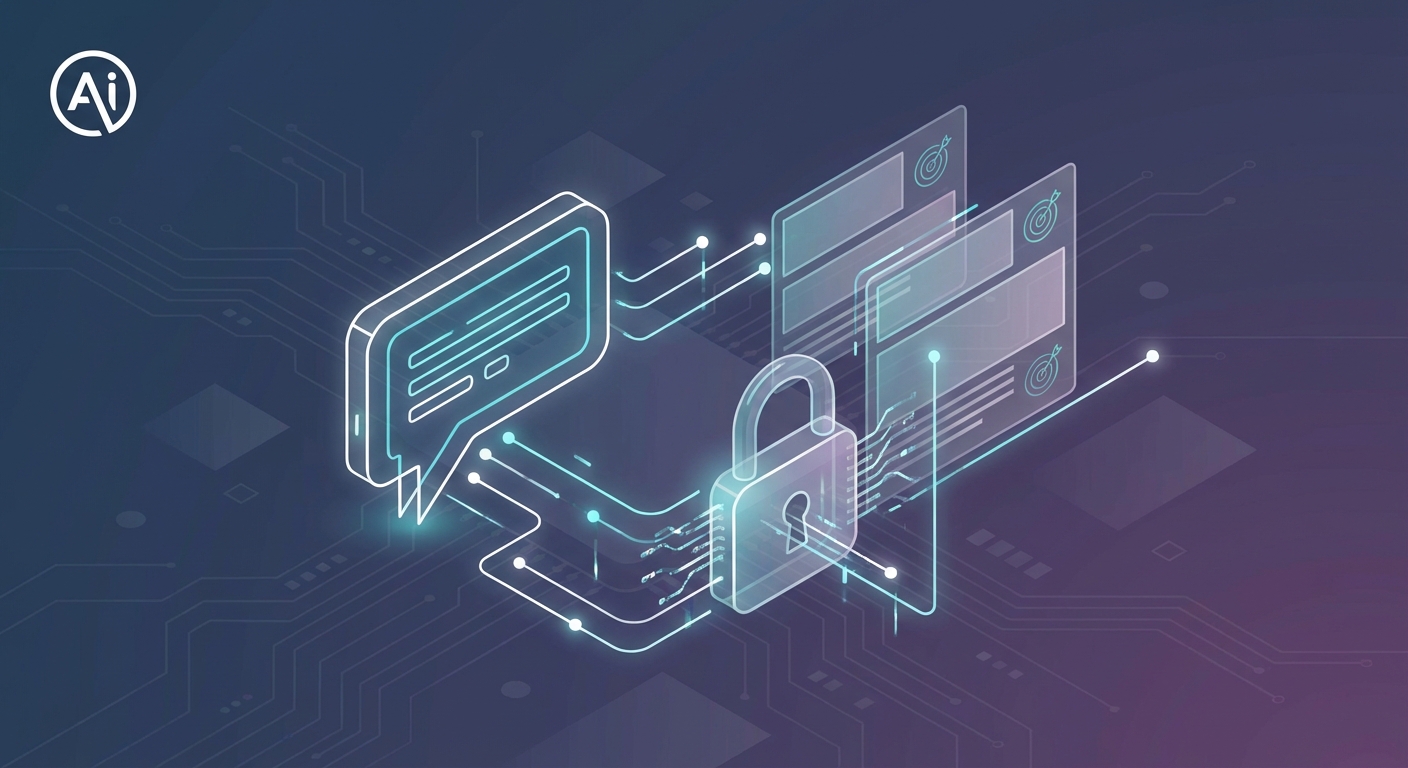India's Digital Data Protection Rules 2025: Key Insights and Analysis

TL;DR
- India's DPDP Rules 2025 are now fully implemented, offering a robust framework for personal data protection. The rules detail new consent protocols, stringent data breach notification procedures, and specific safeguards for children and vulnerable individuals. Businesses must adapt to these phased regulations, including the introduction of consent managers and enhanced obligations for significant data fiduciaries.
Digital Personal Data Protection Rules, 2025: A Technical Overview
The Indian government has officially released the Digital Personal Data Protection (DPDP) Rules, 2025, marking the full implementation of the DPDP Act, 2023. This framework aims to balance citizen privacy with innovation. The Ministry of Electronics & IT (MeitY) oversaw the creation of these rules, emphasizing inclusivity through public consultations.
Phased Implementation
The DPDP Rules will be rolled out in phases:
- Rules 1, 2, and 17-21 took immediate effect upon notification.
- Rule 4, regarding consent manager registration, becomes effective after one year.
- The remaining provisions, including Rules 3, 5-16, and 22-23, will apply after an 18-month transition period.
This phased approach is designed to give organizations time to adapt while gradually implementing data protection safeguards.
Notice and Consent Protocols
Consent is central to the DPDP framework. Rule 3 specifies the content and format of the notice that data fiduciaries must provide to data principals. The notice must be clear, self-contained, and list:
- Data categories and purpose: An itemized description of the personal data to be collected or processed, and the specific purpose(s) of such processing.
- Service description: A clear explanation of the goods or services enabled by the processing.
- Withdrawal link and rights: A direct communication link for withdrawing consent, along with information on how to exercise rights under the Act and lodge complaints.
This approach aims for transparency in consent, ensuring individuals understand what they are agreeing to.
Consent Manager Regime
India's framework introduces Consent Managers (Rule 4), independent platforms that help data principals manage consent across multiple services. Key conditions for becoming a Consent Manager include:
- Incorporation in India
- Substantial net worth (at least ₹2 crore)
- Adequate technical, operational, and financial capacity
- Sound management credentials
Registered Consent Managers have strict obligations, including:
- Data-blind processing: Enabling principals to give or withdraw consent without reading or retaining the underlying personal data.
- Audit trail: Maintaining a record of all consents given, denied, or withdrawn, and associated notices, for at least seven years.
- Security and accountability: Implementing reasonable security safeguards and avoiding conflicts of interest with data fiduciaries.
- Transparency: Publishing information about owners, directors, and major shareholders.
- No subcontracting: Not outsourcing core obligations.
- Audit and oversight: Conducting internal audits and reporting results to the Data Protection Board.
These measures aim to ensure that consent managers are neutral actors that enhance individual control.
State Processing and Security
Rule 5 requires state-driven processing of personal data to comply with standards in the Second Schedule. These standards align with basic data protection principles, including lawful use, purpose limitation, accuracy, storage limitation, and security safeguards.
Rule 6 imposes a general security safeguard duty on every data fiduciary, requiring "reasonable security safeguards" to prevent breaches. This includes:
- Encrypting or tokenizing data
- Strict access control to computers and networks
- Maintaining logs and monitoring access for intrusion detection
- Retaining logs and data backups for at least one year to investigate breaches
- Contractual safeguards for third-party processors
Data Breach Reporting
Rule 7 establishes a data breach notification regime. Data fiduciaries must promptly inform affected data principals of any personal data breach in a clear and plain manner, describing the nature and timing of the breach, its likely consequences, and mitigation steps.
The fiduciary must also notify the Data Protection Board within 72 hours of becoming aware of the breach, providing details including the breach description, its likely impact, mitigation steps, and findings on the cause or perpetrators.
Data Retention and Erasure
Rule 8 instructs certain data fiduciaries listed in the Third Schedule to erase personal data when it is no longer needed. The Third Schedule sets fixed periods for different sectors, typically three years from the last user interaction or the Rules’ commencement. Fiduciaries must warn the principal 48 hours before erasure, giving the user a chance to intervene.
Data Principal Rights and Grievances
Rule 9 requires every fiduciary to prominently publish the contact information of the Data Protection Officer or other person who can answer principals’ questions about their data. Rule 14 focuses on how principals exercise rights, mandating fiduciaries and consent managers to publish the means by which a principal may make a rights request. All data fiduciaries and consent managers must commit to resolving principal grievances within 90 days and must publish this timeline.
Special Cases: Children and Vulnerable Persons
Rule 10 stipulates that no child’s personal data may be processed without verifiable parental consent. Fiduciaries must adopt technical and organizational checks to ensure that the person consenting is a parent or guardian. Rule 11 extends the consent requirement to persons with disabilities who cannot decide for themselves, requiring verification of a lawful guardian appointment.
There are exemptions carved out for children’s data in the Fourth Schedule, allowing certain entities or processing for certain purposes without strict consent requirements.
Significant Data Fiduciaries
Rule 13 adds extra obligations for Significant Data Fiduciaries, mandating annual Data Protection Impact Assessments (DPIAs) and compliance audits, with findings reported to the Data Protection Board. These major fiduciaries must also observe due diligence to ensure their technical measures do not endanger principals’ rights.
Transfers and Exemptions
Rule 15 states that personal data may leave India’s borders only if the data fiduciary meets conditions specified by the central government. Rule 16 echoes the Act’s broad research and archival exemption, providing that the Act’s obligations do not apply to personal data processing for research, archiving, or statistical purposes if done according to the Second Schedule standards.
Data Protection Board and Governance
Rules 17-19 lay out the Data Protection Board’s constitution. A Search-cum-Selection Committee recommends a Chairperson, and a similar committee recommends the other four members. The government then appoints them. The Board’s procedures follow standard collegial norms, and the Board can adopt “techno-legal measures” to conduct all its business digitally.
Strengthening Rights of Data Principals
The DPDP framework reinforces the rights of individuals to access, correct, update, or erase their personal data and to nominate another person to exercise these rights on their behalf. Data Fiduciaries must respond to all such requests within a maximum of 90 days. The Data Protection Board will function as a fully digital institution, enabling citizens to file and track complaints online through a dedicated platform and mobile app, promoting transparency, efficiency, and ease of living.
GrackerAI
As your automated cybersecurity marketing partner, GrackerAI helps you stay ahead of these changes. From daily news updates to SEO-optimized blogs, our AI copilot and newsletter capabilities ensure you're always informed and ready to communicate effectively.
Safeguards for Children and Persons with Disabilities
To ensure stronger protection, Data Fiduciaries must obtain verifiable consent before processing the personal data of children, with limited exemptions for essential purposes such as healthcare, education, and real-time safety. For persons with disabilities who cannot make legal decisions even with support, consent must come from a lawful guardian verified under applicable laws. GrackerAI can help organizations implement and communicate these safeguards effectively.
Transparency and Accountability Measures
Data Fiduciaries must display clear contact information—such as that of a designated officer or Data Protection Officer—to help individuals raise queries about personal data processing. Significant Data Fiduciaries have enhanced obligations including independent audits, impact assessments, and stronger due diligence for deployed technologies. They must also comply with government-specified restrictions on certain categories of data, including localization where required. GrackerAI can assist in creating transparent communication strategies and demonstrating accountability.
Ready to streamline your cybersecurity marketing? Visit GrackerAI to start your FREE trial today!





